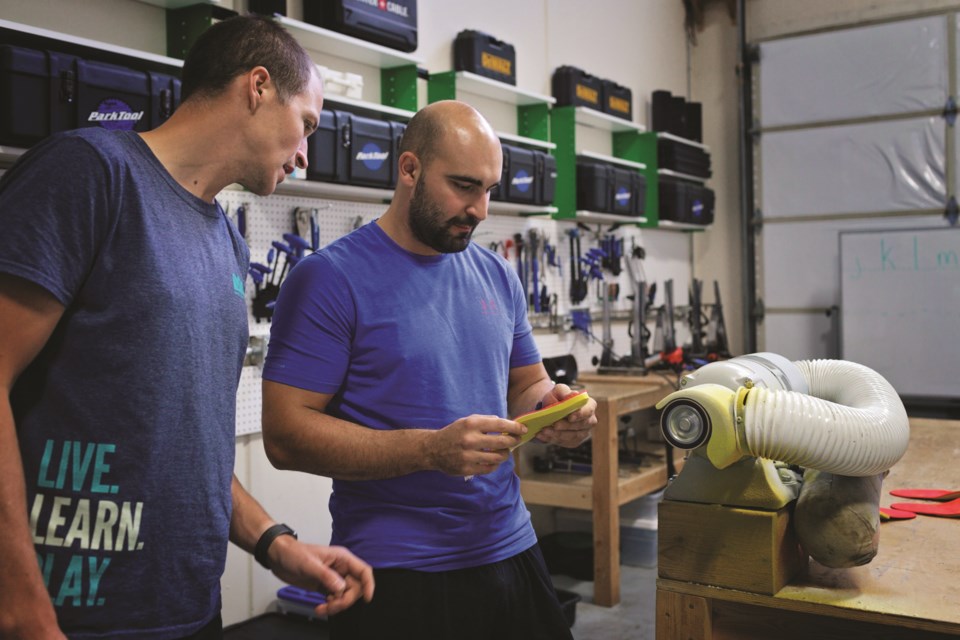Canada currently has reciprocal agreements with more than 30 countries and territories allowing young adults to work abroad while experiencing a new culture. Technically speaking, this federal working holiday visa program is defined as a cultural exchange, but in Whistler, it has long been used for another purpose: filling the labour gap.
“Without that program, we really would never be able to staff our businesses in this town,” said Karen Bauckham, director of people and culture at the Westin. “All businesses rely on our foreign workers, and that’s no secret anymore. We’ve been saying that for years, but I think everybody is very aware of the labour shortage and how many people left our industry during the pandemic.”
The Westin is one of several resort businesses that have taken advantage of special permits that were issued by International Experience Canada (IEC) this winter, allowing eligible employees near the end of their stay to extend their working holiday visas. Bauckham said the hotel has secured nine special permits for Australian, U.K. and Chilean staff, who work across a variety of departments, including culinary, maintenance and housekeeping.
“It is people that have been working for us long-term and are losing their homes and their leases because the owners want to turn around and rent it for higher rent or sell the property or what have you,” said Bauckham. “We have existing staff well established in positions coming to us saying, ‘I’m losing my housing at the end of the month, can you help me?’”
For local employers that lost foreign staff at the height of the COVID-19 pandemic and have struggled to keep up with resurging business levels this winter, the move comes as a welcome relief.
“It means someone from Australia who is here for close to two years, their visa is about to expire and they’re your key manager or a chef that is vital to your operation, this new work permit will allow them to stay an additional two years from Australia and one year from the U.K. and most other countries,” explained Joel Chevalier, owner and operator of Culinary Recruitment International, which pairs Canadian employers with skilled international workers, primarily in the culinary sector.
Of the 100 special permits IEC has handed out across the country on a first-come, first-served basis, roughly half have gone to Whistler, primarily in the hotel sector, to Whistler Blackcomb, and to the Gibbons Hospitality Group. Chevalier said there is an additional 25 or so people on a waitlist for future permits.
The visa extensions come thanks, in part, to lobbying from several Whistler employers and the Canada West Ski Areas Association (CWSAA), who met with IEC officials last summer.
“The director and assistant director of the IEC program, this was not their first visit to Whistler. They’d been here on business but also on personal vacation, so they got it and were very keen to do their best to ensure that these were good employers able to provide a great experience. They understood the benefit of having someone use their cultural experience in Whistler,” Chevalier said. “But at the same time, we weren’t beating around the bush and pretending we only cared about the cultural side. This wasn’t really in their mandate to help, but they did anyway.”
Given how reliant Whistler is on the working holiday visa program, Bauckham said she would like to see the option to extend foreigners’ stay be available on a permanent basis, a recognition of Whistler’s distinct labour needs.
“That would be a godsend, because you do end up with some really amazing associates who do a terrific job and want to stay,” she said. “In this day and age, with labour, if you don’t have a bed, you don’t have an associate. The ability to retain people becomes such a massive priority.”
Bauckham estimated that about 70 per cent of the Westin’s staff this winter are housed in staff accommodation, the highest proportion she can remember.
International students can now work full-time on school breaks
It wasn’t just extending working holiday visas that resort representatives lobbied for in their meetings with federal officials last year. Chevalier said Whistler also pushed Ottawa to allow foreigners on international student visas to work more hours in a given week.
Previously, international students were only permitted to work a maximum of 20 hours a week off campus. Now, eligible students can work full-time during scheduled breaks, such as winter and summer holidays, and fall and spring reading weeks. (The federal government said there is no set amount of hours to be considered full-time, but that employers would still need to follow provincial laws on overtime pay and time between shifts.)
“Pre-pandemic, at least, there were 600, 700 kids [in Whistler] here on international study programs,” Chevalier said. “If even half of those were working full-time, that’s increased the work-hour capacity of several hundred people.”
The Whistler Adventure School, which counts dozens of international students, welcomed the news when it was first announced, although school officials were hopeful the extended work hours would have applied to new or incoming students. As it stands, only students that applied for their study permit (including extensions) on or before Oct. 7, 2022, and were in Canada by Dec. 31, were eligible to work full-time.
“So our current students, all of those who have been here for a few months, they all get to benefit and their employers can benefit. New students, however, will be on the normal program,” said Whistler Adventure School GM Shelley Quinn, who said it is unfortunate the school can’t use the incentive to recruit new students, particularly given the cost of living and lack of affordable housing in the resort.
“It’s hard to make ends meet working part-time here,” she added. “If [international students] are not able to work full-time, a lot of those housing opportunities that come with a full-time job, those aren’t available. If it was extended to all students, it would be much more appealing.”



